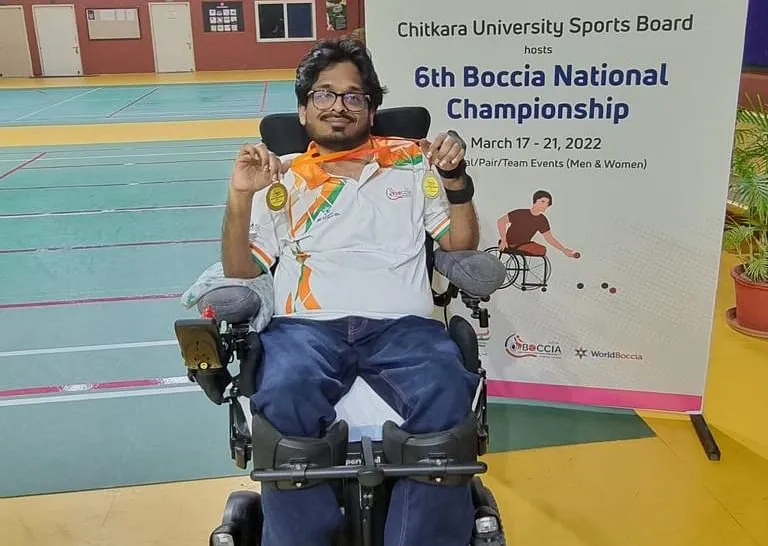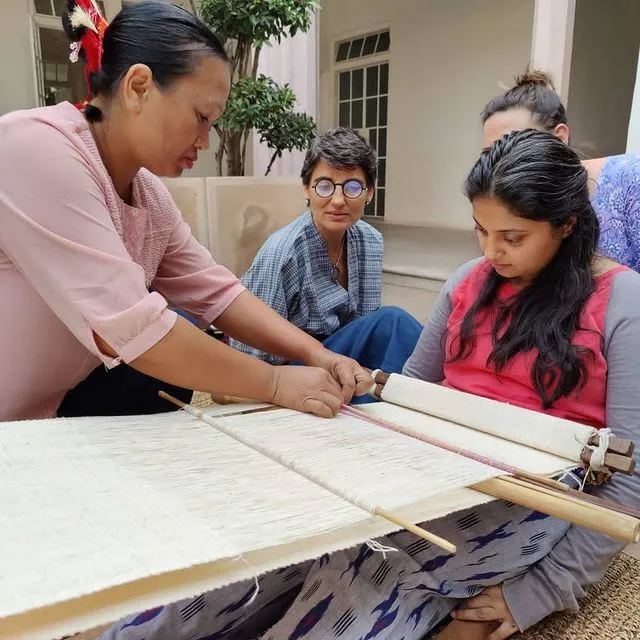From rejuvenating handloom industry to strengthening India's health infrastructure: top SocialStories this week
This week, we shared stories of passion, determination, and purpose through the eyes of different individuals and organisations.
This week, SocialStory caught up with former cricketer and Founder of YouWeCan Foundation--Yuvraj Singh to discuss more on his foundation's vision and activities.
Meanwhile, we also had a chat with international boccia player Sachin Chamaria who shared his journey of becoming a para athlete, and on what motivates him to move forward.
Meet para athlete Sachin Chamaria who has made India proud at an international level
Sachin Chamaria from Delhi met with a road accident at the age of seventeen while holidaying in Kolkata in 2008. The accident left him paralysed from neck down, involving all four limbs, including the bowel bladder.
But Sachin did not let his handicap deter him or slow him down from achieving his dreams. After the accident, the shock of never being able to walk again did not bring him down.

After a few years, Sachin started working on physical training to gain movements in his limbs. It’s been 14 years since he has been wheelchair-bound. Even today, he needs the assistance of a wheelchair and caretakers in order to move around and do his daily chores. He does therapy daily and believes he is recovering from it daily - one way or the other.
Today, the 31-year-old has represented India in Boccia - a game that is played by differently-abled people.
How cricketer Yuvraj Singh’s YouWeCan Foundation is strengthening India’s health infrastructure
The second wave of the COVID-19 pandemic was a nightmare for the country as many lost their loved ones and struggled to procure oxygen, Critical Care Unit (CCU) beds, and other critical care facilities while fighting for their lives.
Witnessing such an unprecedented crisis and loss of life all around as well as going through a personal loss, Yuvraj Singh, former cricketer and Founder of , felt the need to step up to support healthcare providers in their fight against this deadly virus.

In June 2021, his foundation launched the Mission 1000 Beds initiative to scale up the critical care capacity of government hospitals across India by setting up oxygenated beds, ventilators, BiPAP machines, and other essential medical equipment.
When women win, we all win. Here’s how to bring women back to work after career breaks
As a chief executive in the tech industry, I know first-hand the challenges our industry faces when it comes to increasing diversity. Recent statistics from the National Center for Women and Information Technology (NCWIT) show that women make up about half of the workforce in the United States, but fill only 26 percent of professional computing jobs.
Across India, women held just 26 percent in IT and ITES roles, according to the Zinnov-Intel India Gender Diversity Benchmark Report 2021. The report further highlights that the Indian corporate ecosystem has only 11 percent representation of women in senior leadership roles, 38 percent in the junior level, and 20 percent in mid-level roles.
In this article, I have distilled my learnings about the state of women in tech and across industries, their current challenges, barriers to inclusion and advancement and what businesses should do to level the playing field for women.
How Tata Trusts’ Antaran programme is empowering artisans, rejuvenating the handloom sector
Antaran engages with weaver communities through incubation and by setting up design centres in the clusters for the development of education, enterprises, and ecosystems. Its mission is to enable weaving communities to sustain their culture with systematic education and ecosystem building and to create contemporary designs with traditional techniques for sustainable livelihoods through craft.

Live demonstrations of the indigenous weaving technique of loin loom weaving of Nagaland
The overarching objective is to create artisan-led microenterprises that will sustain traditional craft through innovation and create a lucrative profession for the younger generation.
“We found in our studies that though there have been organised initiatives, the situation remains the same as each of the issues that hail the craft has not been addressed systematically, and most importantly, an entrepreneurial approach has to be taken for sustainable growth. In groups and collectives, the individual drive and freedom for taking responsibilities and decisions get limited, making the groups not agile enough to respond to market realities,” says Mridula Tangirala, Head of Tourism and Head of Crafts, Tata Trusts.
Edited by Megha Reddy






